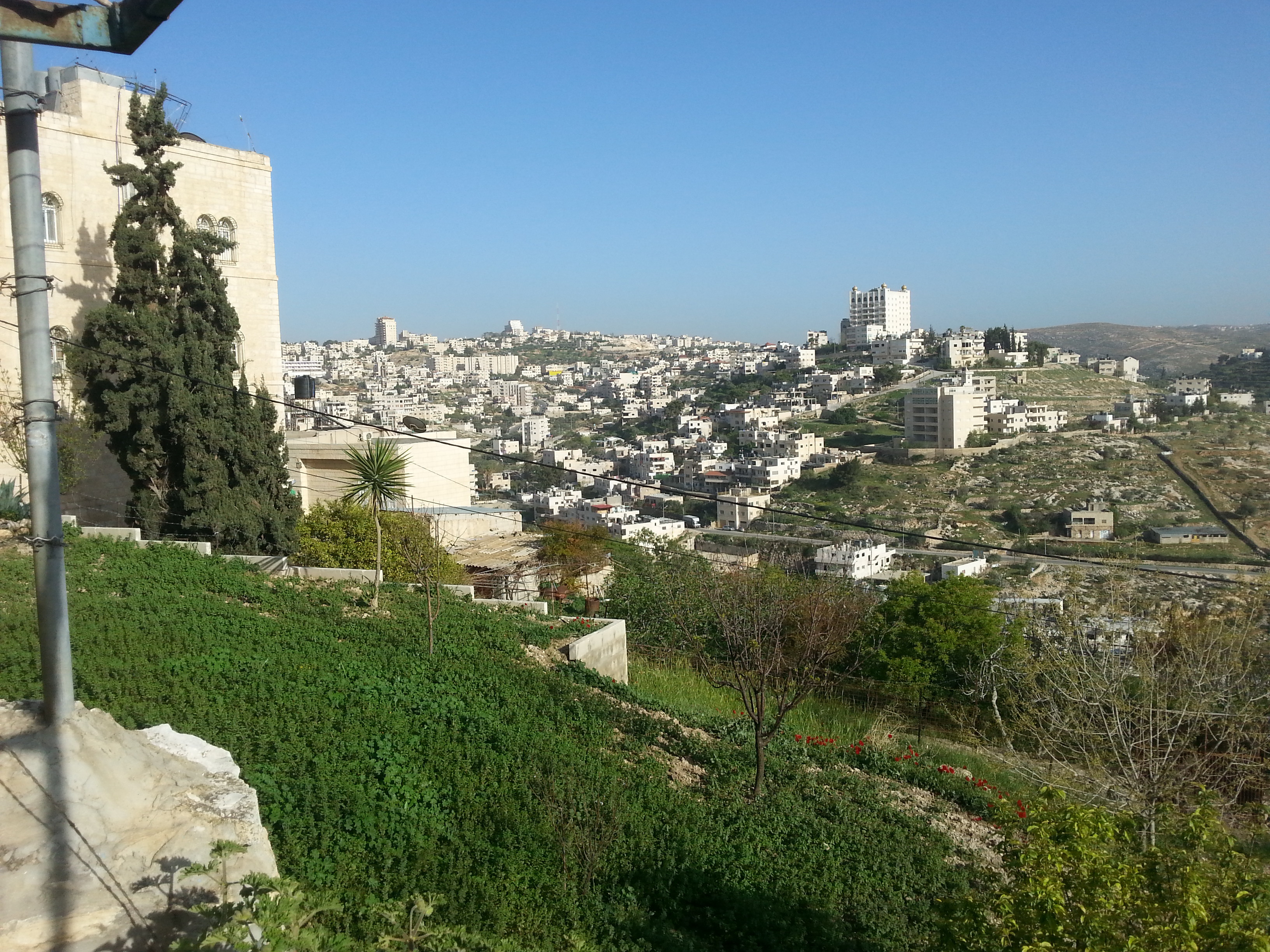+972 Magazine, March 28, 2015
It wasn’t the soaring arches or the elegant windows, with their curved caps. It wasn’t that the first room of the house was built in 1808. It wasn’t the jasmine that, like a woman letting down her hair, released its heavy perfume at night. It wasn’t the olive, loquat, lemon, almond, and apricot trees that filled the garden. Nor was it that the fruit from that garden seemed sweeter here in Bethlehem than it was in Jerusalem.
The apartment’s biggest selling point, in my landlady’s opinion?
The well.
She showed it to me the first time I saw the place, before I’d decided to rent the apartment. The well was hidden behind a curtain in the kitchen. She pushed the fabric back, revealing a deep recess in the wall. Inside the nook stood a pump and, on the floor, a large stone with a wrought iron handle. My landlady, who was in her seventies, gave the handle a tug. The rock lifted. There was a clunk as she placed it on the kitchen floor.
My landlady got on her knees and peered into the hole, a spot of night surrounded by chiseled white.
“See?” she tapped my calf, signaling that I should get on the floor, too. I obliged her.
I peered into the well. I didn’t see anything. But I could smell the collected rainwater below us.
My landlady put her hands on my back and pushed herself up. As she brushed the dirt off her knees, she explained to me that, if I were to take the apartment, we would share the well. And while our neighbors’ taps would run dry—as they always do here, eventually—we would never go without.
I remembered a long, waterless weekend I’d spent in Bethlehem in 2010. An American friend who lived and worked there had invited me to come celebrate his birthday. I was living in Tel Aviv then and had only been to Bethlehem once before, to work on an article for The National. The photographer who’d been assigned to the story also had Israeli citizenship. Unlike me, however, he had a car. That day, we’d left the Bethlehem area via the settler checkpoint outside the tunnels—a checkpoint we should have breezed through as two Jews riding in a yellow-plated vehicle. But the female soldier stopped us and asked for my ID. Nervous about the fact that I’d been in Bethlehem, which is off-limits to Jews who hold Israeli IDs, I gave the solider my American passport. She rifled through it looking for my visa. When she didn’t find it, she rolled her eyes at me, sighed, and asked me in Hebrew, “Where is your identity card?”
The photographer and I talked our way out of trouble. But I was rattled by the experience and feared that I’d be arrested the next time I was caught. Still, when my American friend asked me to come out to the West Bank for his birthday, I said yes. I told myself that I didn’t need to think too far ahead—I’d worry about leaving when it was time to leave.
When I got there, I found my friend’s house filthy; his kitchen sink overflowing with dirty dishes. “The water’s out,” he explained. He showed me how we could flush the toilet and brush our teeth using the water he’d saved in plastic bottles ahead of time. I would learn later that other friends keep buckets in their showers to collect the grey water. Because this is what you do in the West Bank, where you’re always waiting for the taps to go dry, where the Jewish settlements you can see from your window or that you pass on the road—the nice, neat, clean settlements that are locked away behind fences and surrounded by security—have green lawns and full swimming pools.
Despite the water shortage, what was supposed to be an overnight trip to Bethlehem turned into three nights of sleeping on my friend’s couch. Every time I thought about leaving, I remembered my confrontation with the female soldier. There are checkpoints on every side of Bethlehem: how could I get out of here without getting caught? And this time I was without a car: wouldn’t it be even more difficult on public transportation? Because I’d be coming out of a Palestinian area, I’d be on a Palestinian bus. And while settlers’ buses just roll through the checkpoints, Palestinian buses are always stopped, passengers IDs are always checked.
I couldn’t figure it out, and I dreaded the soldiers, so I just stayed. And stayed. I joked with my American friend that it would be easier for me to go to Jordan and take a flight from Amman to Tel Aviv than it would be to just take the bus home.
Finally, on the fourth day, I realized that I couldn’t just wait out the occupation. The checkpoints and soldiers weren’t going to disappear. And I needed to take a shower. I had to get back to Tel Aviv somehow.
When I left my friend’s apartment that day, I had no idea how I’d get home. Nor did I know that Bethlehem would soon be my home; that I’d end up moving here less than three years later, into a house—a house with a well—owned by refugees from Jaffa.
